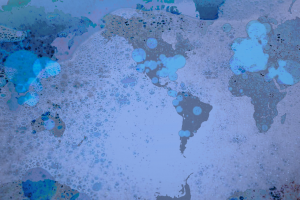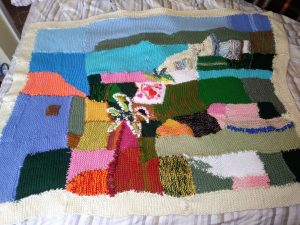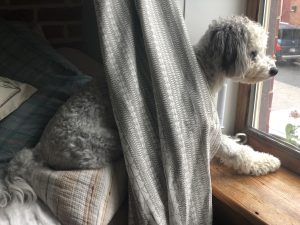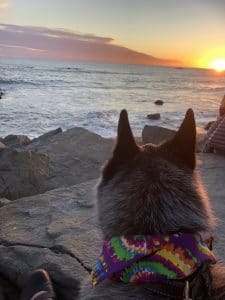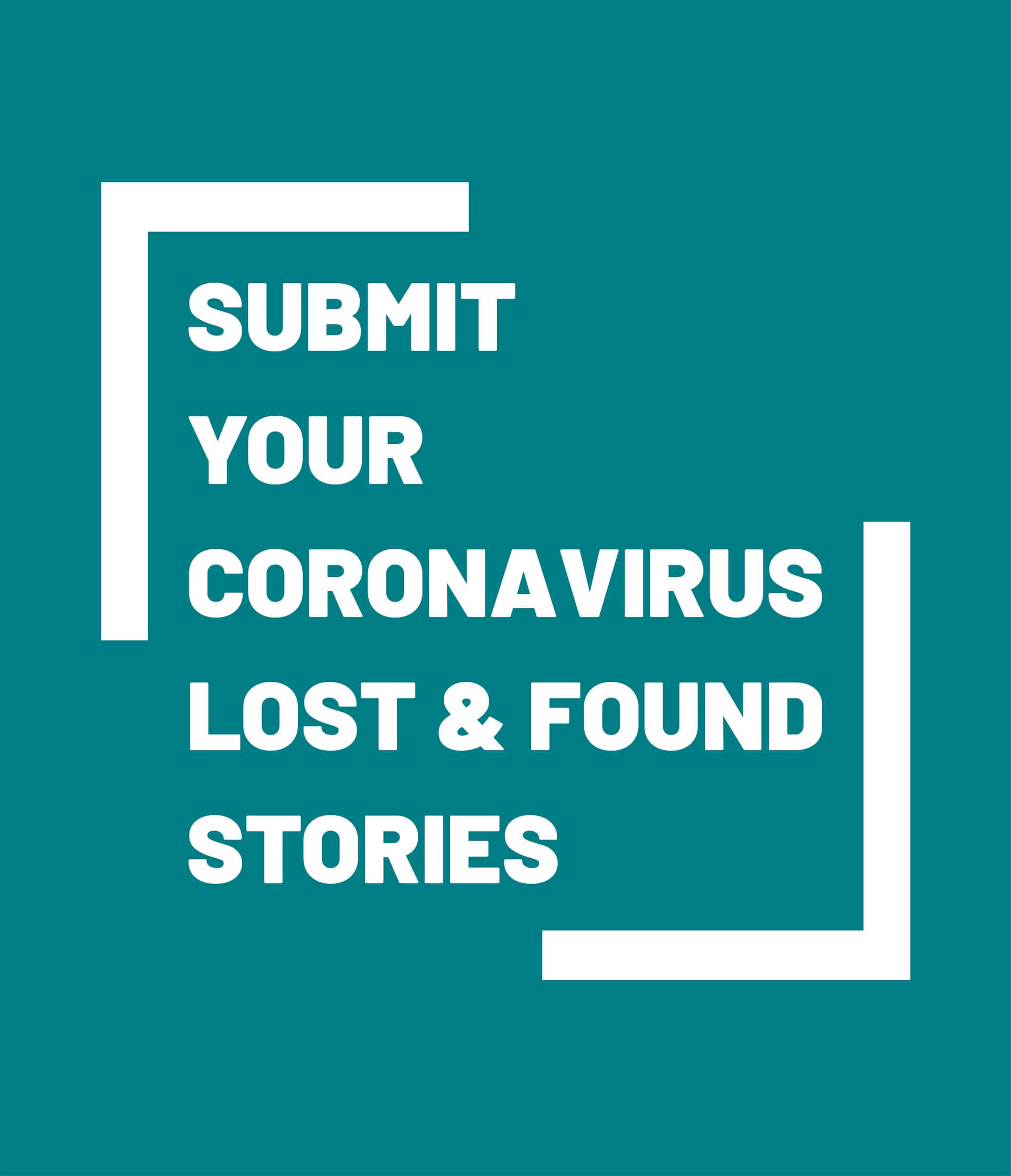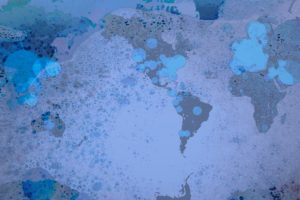
The Swan Woman and the Snapper Lady
“Did you hear about Venice?” A young man was shouting into his phone as he jogged past me on the bike trail in Lincoln Park the day before all the lakefront parks were closed.
“The fish are back!” he yelled.
I’m a retired conservation ecologist so my ears perked up when I heard this. I took it to be one of the reported positive environmental effects from the Covid-19 pandemic, even as it wreaks havoc on our human lives.
Walking in natural areas has been a way for a lot of us to get exercise since our normal lives have been so circumscribed by this miserable pandemic. We also get some relief from Zoom meetings and maybe even a little perspective, while still feeling relatively safe outdoors.
Mine are solo walks, but they include regular interactions with people. I was surprised though that morning when an older woman approached me at the edge of North Pond. “Did you see the swan?” she asked.
This was before we were all wearing masks, but she maintained the prescribed social distance. I assumed she was being friendly because she saw my binoculars, so I responded with a smile.
“Yes. It’s a Mute Swan.” I am a birder.
Her face clouded. “You think it’s a wild swan?” she asked. “You don’t think it escaped?”
We were standing 200 yards from the entrance to the Lincoln Park Zoo. She looked me in the eyes and then, almost casually, suggested that the two of us try to capture the bird and return it to its home at the zoo.
She maybe had not completely thought this through.
I formed a mental picture of us, both older ladies, wading fully dressed across the freezing pond to wrestle a reluctant 30 pound bird with a 7 foot wingspan.
I decided to change the subject.
“Did you see the Black-crowned Night Herons?” I asked, hopefully.
She showed zero interest.
“Do you think the Swan is all right? she insisted. “It’s all alone. Look! It has its head under its wing.”
I nodded, but decided it was time to move along. I walked briskly down the path to the other side of the zoo to continue my constitutional.
I like people who wish to rescue animals in trouble. Surely we need more compassion in our culture. During my stint working at a Chicago nature center in the 80’s I encountered a lot of these people. I regularly received calls from well-meaning neighbors breathlessly giving me such news as “Your opossum is in my yard.”
They seemed to expect me to run right over and retrieve it, as if they were reporting a lost child.
These good-hearted people often “adopted” wild animals and sometimes they paid a price. One woman told me she brought in orphaned baby squirrels and the ungrateful creatures completely shredded her couch while she was at work.
Not far from the site of the Swan-woman encounter the year before, I had met a different woman who was wildly gesticulating on Stockton Drive during heavy morning traffic. At her feet was a huge snapping turtle which, with her help, was slowly making its way across the busy street. This animal was likely a resident of North Pond looking for a suitable high and dry place to lay her eggs. The woman tried to engage several of us passersby in capturing the animal to “return it to its home.”
I am not a herpetologist, but I knew enough to stay away from a large hissing snapper that seemed determined to walk in the opposite direction of “its home.” We offered to call Animal Control, but the Snapper-lady said they would just kill it. She was probably right, but the poor beast had gotten itself into a tough spot and seemed doomed, so I regretfully left and never learned the outcome of the dire, cartoonish standoff.
We are all thinking about the negatives of the pandemic, but maybe there are positives—like the fish in Venice the jogger was so excited about. The media is full of such stories–cleaner air in China and friendly goats in Scotland. So many charming anecdotes!
As I was continuing on my escape route from the Swan Lady and assembling this mental glass-half-full list I saw her approaching again. I braced myself for another swan argument, but she had a different question.
“I just saw some interesting ducks. Maybe you know what they are. All black with white here,” pointing at her nose.
Okay! A sensible question and I knew the answer! “Coots. They are Coots.” I answered enthusiastically.
She gave me a blank stare.
“C-O-O-T. Like old coot.”
“Are they wild?”
“Oh yes. Completely wild.”
She frowned.
Something was troubling her. Did she want to rescue them too? Maybe it was a weird name. Maybe she is just a worrier. This time she walked away.
I admit that I too have the inclination to rescue critters in need. This is probably inherited from my soft-hearted mother who always said “yes” when we brought home orphans of any kind. I try to channel this urge.
Three years ago I volunteered with a group that collects injured birds that strike buildings during spring and fall migration. It is grueling work; I only lasted one season.
It is impossible to know the long term effects of the shattering pandemic of 2020. My hope is that things will improve, but that seems unlikely to be soon, so I am searching for silver linings.
There have been a lot of claims about environmental benefits as noted above, but there sure seems to be a lot more single-use plastic around: masks and gloves and such. And who knows what all that hand sanitizer and disinfectants will do to the water? The internet says air quality is TEMPORARILY improved in some places. I briefly looked into the situation with the fish in Venice that the jogger was talking about and it seems there have always been fish (and even dolphins!) in the canals, but the water has been so muddy from all the boat traffic that they have been invisible until now.
Chicago lakefront parks and many other popular areas have been closed to people, and we birders are screaming that this is cruel and unusual punishment. But a few thoughtful birders are suggesting that maybe our absence could be better for the birds we claim to love so much.
The best outcome I can think of of the mostly tragic pandemic is that the human suffering from Covid-19 is so widespread and unavoidable that we privileged Americans are experiencing it directly. It is not somewhere else. We usually see famine and war and disease on television or the internet where it is distant and not personal. Honestly, we don’t really think about it too much. Maybe we send a check. Maybe we write to our elected officials or march in a demonstration.
But this huge problem is right here, not in distant Syria or Bangladesh. Will this painful experience give us more ability to empathize when we see something terrible? It’s possible.
Maybe we will all become more like the slightly wacky people who try to help animals in distress. I admire their ability to see outside of themselves to the plight of the rest of the living world. Their willingness to step up.
Don’t we need more of that?

